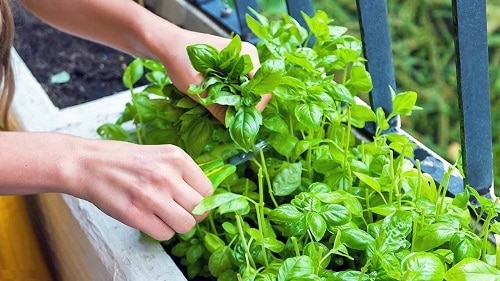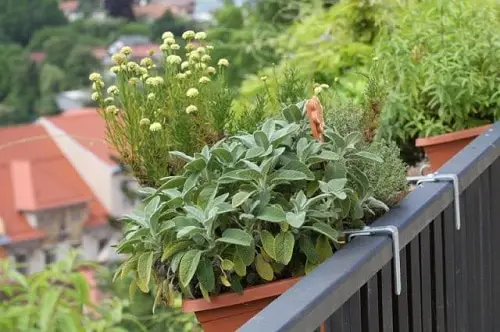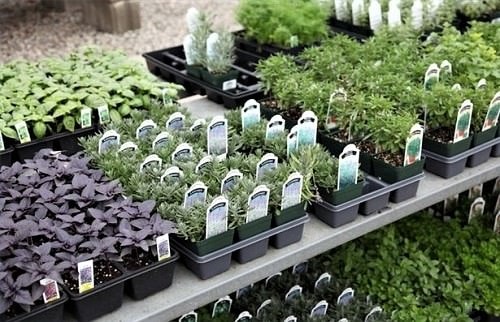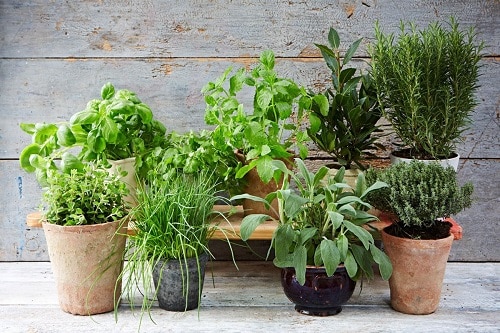If you’re new to growing plants, these 2-Minutes Practical Tips for Starting a Balcony Herb Garden are going to help you a lot.
If you’re a beginner plant grower and want to grow flavorful herbs in your balcony, these quick 2-Minutes Practical Tips for Starting a Balcony Herb Garden are going to help you a lot.
Check out these smart gardening hacks for beginners here
Tips for Starting a Balcony Herb Garden
1. Buy Seedlings
If you’re a beginner, don’t start your herb garden from seeds. Instead, buy seedlings or already established herb plants from a nursery. This will save your time and efforts.
2. Avoid Exotic Herbs
Exotic herbs are exotic because they don’t grow in your area. They could be demanding and might need different requirements. So, it’s best to avoid them until you develop a green thumb and master growing basic cooking herbs.
Check out our article on easy to grow herbs for newbies here
3. Start With Basil

If there’s the easiest herb that anyone can start anywhere, no matter where–it must be basil. Of course, the first herb you should be growing is basil. You can also grow it in the water!
Here’s a quick and easy guide on growing basil
4. Choose Herbs According to the Climate
To avoid failure, select herbs that are easy to grow in your climate. Do a Google search to discover about herbs that prefer the temperature range of changing seasons you’ve got at your place.
5. Pick Herbs You Use Most
You should grow herbs that you add most in your cooking. For instance, if you love Thai food, don’t start growing Japanese herbs. Make a list of 3 most common herbs you use most that grow well in your climate and plant them.
6. Pay Attention to Drainage
Refrain from growing herbs in pots with no drainage holes as it’ll result in the death of plants. Pick a well-draining, loamy potting medium too!
Learn to grow a balcony herb garden here
7. Don’t Grow Herbs Together
Don’t plant multiple herbs together, but if you do always select the herbs with similar growing requirements.
8. Use Balcony Railing

Use your balcony railing to create extra space. With improved air circulation and sunlight, your herbs will thrive well.
9. Add Green Vegetables and Tomatoes
After planting herbs, if you want to expand your edible garden, go for green vegetables such as spinach, lettuce, and Asian greens. Tomatoes grow effortlessly as well!





Unsuccesful in growing any herbs especially Rosemary n Sweet Basil n Thai Basil